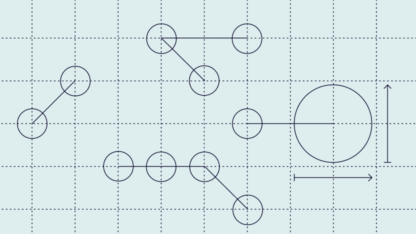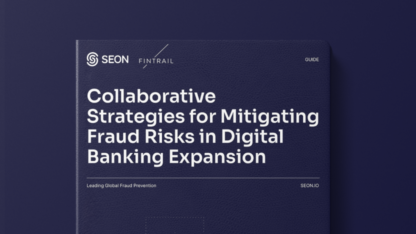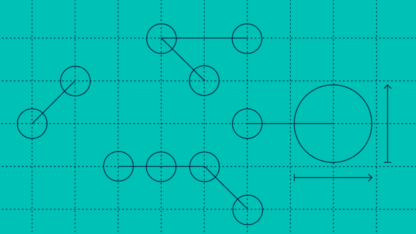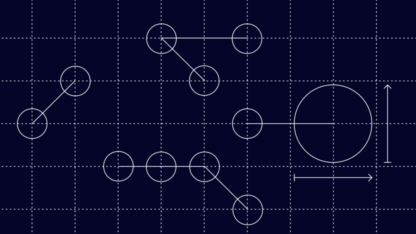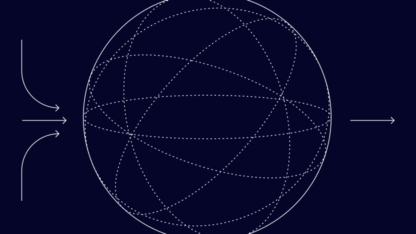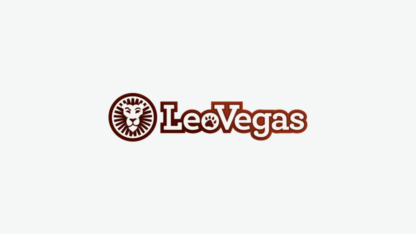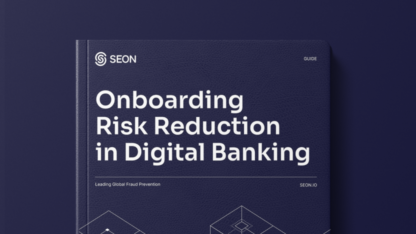On February 6th, 2014, President Barack Obama unveiled the Foreign Sanctions Evaders list, targeting “foreign individuals and entities determined to have violated, attempted to violate, conspired to violate, or caused a violation of US sanctions”.
It was developed to cast a wide net around those who would circumvent the restrictions put in place by the Consolidated Sanctions List, initially targeting Iranian and Syrian entities, as well as those that were deemed to be part of the international proliferation of weapons of mass destruction.
In March 2014, after Russia annexed the Crimean Peninsula, President Obama issued three executive orders designed to bring economic consequences to the Russian aggressors without toppling the delicate balance of the international economy. Where the Foreign Sanctions Evaders list cast a wide net, these new sectoral sanctions were a tighter, laser-focused net.
What Are Sectoral Sanctions?
Sectoral sanctions are the targeted sanctions of specific industries within a sanctioned country to better manage the impact of the sanctions on the global economy.
Currently, most of the entities under sectoral sanction are Russian, and were first designated by the Office of Foreign Assets Control (OFAC) to be “Contributing to the Situation in Ukraine”. All entities under sectoral sanction are on the 177-page Sectoral Sanction Identification (SSI) List, which also features certain Venezuelan and Iranian names.
Broadly speaking, the sectors on the SSI list include those which most acutely impact the ability to wage ongoing military conflict, including:
- energy
- finance
- defense
- Rosneft’s deepwater Arctic oil project
Additionally, there are specific individuals and firms that appear on the SSI list, who are oligarchs and politicians associated with Vladimir Putin’s inner circle. Furthermore, OFAC released a list of 21 entities and 13 individuals who were instrumental in helping SSI-listed entities work around existing sanctions.
Recent additions to the broad SSI jurisdiction include specific sanctions against Russian technology and cybercrime verticals, like microchip manufacturers and one of the world’s largest dark web markets – Hydra.
Like all of those entities listed on either the Specially Designated Nationals (SDN) List or the Consolidated Sanctions list (of which the SSI List is a part), US entities are prohibited from engaging in any business dealings with organizations on the SSI List.
This extends to any derivative entity whose ownership is at least 50% a sanctioned person, according to the 50 percent rule.
SEON’s advanced APIs help keep fraudsters and high-risk users out of your system, minimizing ROI damage from chargebacks and fines. See what they can do for you.
Ask an Expert
Why Were Sectoral Sanctions Developed?
Sectoral sanctions were a direct response from the Obama administration to Russian aggression in Ukraine and the Crimean Peninsula, to deliver a message to the country while preserving much of the delicate balance of the global economy.
That administration was cognizant that casting the widest net – primary and secondary sanctions – over the world’s eighth-largest economy could destabilize the international economy at large, and the world was still recovering from the financial crash of 2008.
Thus, with the goal of destabilizing the famously tumultuous ruble and causing Russia to reassess whether they could finance their malignant efforts, while also protecting the delicate global economy, OFAC developed specific language for their financial sectoral sanctions. This was clarified in Executive Order 13662, which stated that while new instances of debt or equity financing were explicitly prohibited with sanctioned names, all other activities with these persons or their property were permitted.
Sectoral Sanctions vs Traditional Sanctions
When they were first introduced, sectoral sanctions were defined against previous kinds of sanctions. Compared to broad sanctions, which do the most economic damage to the sanctioned person, company, or place, sectoral sanctions are less like a blanket and more like a muzzle, spear, or pointed finger. They are used to inhibit particular functions of particular verticals, without imposing maximum strictness on that entity’s ability to contribute to the economy. Very often words like “surgical” are used to describe their specificity in published conversations around it.
Previously, existing sanctioning mechanisms were much less focused. Indeed, sectoral sanctions were defined against these previous kinds of legislature.
Let’s take a closer look.
| Levied against… | What are they? | How do they differ? | |
| Primary sanctions | Levied against individual entities outside the issuing country. Can include people, businesses, or entire countries. Their names will appear on OFAC’s SDN List. | Typically are things like trade embargoes, freezing domestically held assets, and travel restrictions. | Sectoral sanctions do not impose these mechanisms on the sanctioned entity as completely as primary sanctions. |
| Secondary sanctions | Initially introduced to combat the workings of Iranian and Syrian entities that were intentionally avoiding primary sanctions by working through intermediaries and shells. | Trade embargoes, frozen assets, and travel restrictions that threaten third parties working for primary-sanctioned entities – even if the third party is not a citizen of the issuing country. | Sectoral sanctions allow for third-party brokerage provided they do not engage in the explicitly sanctioned verticals, and the parties are not otherwise subject to harder sanctions. |
| Narrative sanctions | These throw the largest and most loosely-defined blanket over business dealings – against any entity. Per a Refinitiv webinar, up to 95% of all sanctioned entities might fall under the narrative sanction category. | Narrative sanctions are the legal imposition of sanctioning over an entity that is not specifically named on any list, but whose relationship to the sanctioned name makes them an equal risk. | Sectoral sanctions focus on specific transactions with surgical precision; narrative sanctions can be thought of as doing the opposite. |
| Sanctions by association | Imposed on persons associated with those subject to other types of sanctions. Include things like family or the “employees” or mules of a terrorist organization. | Same penalties as the associated named person – e.g. when a named sanctioned person owns at least 50% of a company, the remaining stakeholders are considered sanctioned, though they might not be on any list. | This type is even more loosely defined than narrative sanctions, though they are officially their subset – as these are defined by their association with narrative sanctions. |
Who Needs to Know About OFAC Sanctions?
When staying compliant and clear of legal and reputational risks, your organization needs to be aware of who is sanctioned, if your existing customer base represents any exposure, and if your organization falls within the jurisdiction of OFAC at all. This applies to several types of companies, including those who do business with a variety of sectors in countries that are sanctioned and those who process transactions through American financial institutions.
What Companies Need to Be OFAC Compliant?
The first question that should be on your compliance radar should be: Do I need to comply with OFAC sanctions? In all likelihood, the answer is yes.
In fact, the answer is yes if you or your company is:
- a US citizen
- a permanent US resident located anywhere in the world
- a person of any nationality located in the US
- an entity organized or incorporated in the US, extending to any overseas branches
- processing transactions through US financial institutions or in US currency
Additionally, secondary sanctions apply to any non-US entities that have business dealings with US ones.
Penalties for OFAC Rulebreakers
Failure to integrate sanction compliance into your company’s workflows can result in huge fines and reputational damage. Depending on how severe the violations are, either might be the more impactful on your business.
As stipulated by OFAC regulation, fines for sanction violations can range from $1 million per violation or up to 50% of the transaction’s total value. In 2021, OFAC fined the Union de Banques Arabes et Francais $8.57 million, the largest fine levied that year.
Potentially more damaging, however, are additional punishments such as up to 30 years imprisonment for individual violators, and the possibility that a non-compliant entity can become sanctioned itself – probably the worst possible outcome.
Partner with SEON to reduce fraud rates in your business with real-time data enrichment, whitebox machine learning, and advanced APIs to handle data, PEP and sanctions lists.
Ask an Expert
How Can You Keep OFAC Compliant?
To stay on top of any intersection between your customer base and entities appearing on sanctions lists, services offering anti-money laundering (AML) screening are of great help.
AML tools such as SEON check sanctions lists against the submitted data of your users, noting any matches that would bring your company into non-compliance. You can try our AML and sanctions list screening below.
As AML violations can be enforced on historical actions, customers also have to be continually monitored for risky associations. By keeping records of your firm’s transaction history, as well as the maintained monitoring of your user base, AML software also facilitates this aspect of OFAC compliance.
Financial governing bodies worldwide know that keeping sanctioned entities from muddying international waters is a multi-faceted problem that calls for a multi-handed solution. In addition to an AML-compliant software solution, dedicated staff members need to use all available tools to keep your risk exposure low – or your company might potentially itself on OFAC’s sanction lists as well.
FAQ
Currently, sectoral sanctions in Russia are focused on the energy, defense, finance, and technology sectors, with some of the same financial restrictions imposed on Venezuela and Iran.
OFAC currently has lists for 1. Specially Designated Nationals (SDN), 2. non-SDN Consolidated Sanctions, and 3. Other Sanctions.
At the time of writing, the US has sanctioned Cuba, North Korea, Russia, Venezuela, Syria, and Iran.
You might be interested in:
SEON: The Best Five Sanctions Screening Software & Tools in 2024
